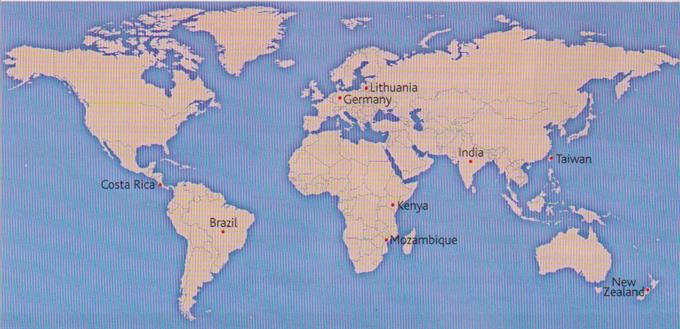
Заглавная страница Избранные статьи Случайная статья Познавательные статьи Новые добавления Обратная связь FAQ Написать работу КАТЕГОРИИ: ТОП 10 на сайте Приготовление дезинфицирующих растворов различной концентрацииТехника нижней прямой подачи мяча. Франко-прусская война (причины и последствия) Организация работы процедурного кабинета Смысловое и механическое запоминание, их место и роль в усвоении знаний Коммуникативные барьеры и пути их преодоления Обработка изделий медицинского назначения многократного применения Образцы текста публицистического стиля Четыре типа изменения баланса Задачи с ответами для Всероссийской олимпиады по праву 
Мы поможем в написании ваших работ! ЗНАЕТЕ ЛИ ВЫ?
Влияние общества на человека
Приготовление дезинфицирующих растворов различной концентрации Практические работы по географии для 6 класса Организация работы процедурного кабинета Изменения в неживой природе осенью Уборка процедурного кабинета Сольфеджио. Все правила по сольфеджио Балочные системы. Определение реакций опор и моментов защемления |
International cultural youth exchangeСодержание книги
Похожие статьи вашей тематики
Поиск на нашем сайте
Just think about: · living abroad for a year (or six month); · learning a new language and getting to know a culture from the inside; · developing new perspectives. Through ICYE, young people aged 18 to 25 (up to 30 in certain countries), with or without qualifications, after secondary school or during their university studies or (un)employment, have the opportunity to live in another country with a family or in a residential project, and work as volunteers in a wide variety of voluntary work placements. To be a volunteer with ICYE means integrating in the life and work of the host organization and wider community. Volunteers are supported and encouraged to get involved in the planning and managing of distant activities, take part in staff meetings, and to take on responsibilities, according to their skills and interests, as well as the needs of the project. An important aspect of the voluntary service experience is the volunteer’s active participation in the life of the community in which he/she lives and works. Voluntary service placements offered by ICYE include social work project dealing with children and young people at risk, with the elderly, the disabled, rural and health development projects, human rights organizations, peace associations, ecological projects, women’s groups, migrant workers’ groups, fair-trade shops, and solidarity projects. Who can be volunteer? Any special requirement? There is no such thing as a “typical” volunteer. ICYE volunteers should be: · flexible, communicative, and open to new experience; · willing to learn new skills; · broad-minded and self-reliant; · committed to inter-cultural understanding; ICYE volunteers don’t need: · specialized skills or work experience; · foreign language skills; · experience of international travel. Find in the text: a) how old volunteers should be. b) If a volunteer should have special qualifications. c) How volunteers get involved in the life of the host community. d) The kind of people they may work with. e) The essential personal characteristics a volunteer should have. f) What a volunteer doesn’t necessarily need to have. 2. Read the information:
EXAMPLES OF VOLUNTARY SERVICE PLACEMENTS AND RELATED VOLUNTEER TASKS · Planning and organizing activities for young people in a youth centre in Belgium. · Working alongside street educators and local volunteers in providing shelter and food, and running literacy classes and vocational training to street children in Colombia, Ghana and India. · Providing material assistance and emotional support to HIV positive children and adults in specialized centers in for example, Kenya, England, Germany and Russia. · Promoting artistic and animation activities with rural children in Honduras and Mozambique, Nepal, and Uganda. · Organizing human rights campaigns in Brazil. · Working on ecological projects in Costa Rica, Mexico and Thailand. · Working on a farm in Iceland and New Zealand. · Teaching special needs children in Taiwan. · Organizing activities and providing assistance to disabled people in France, Italy, Japan, Lithuania, and South Korea. · Organizing and running activities in centers for refugees and migrant workers in Germany. How do I apply? You can fill out our online Expression of Interest Form and submit it to the corresponding ICYE National Committee in your country of residence. If there is no ICYE Member Committee in your country, please contact the ICYE International Office for more advice. 3. Complete the map with the kind of volunteer work taking place in each country, according to the text.
SPEAKING Look at the map and decide which of these projects you would rather take part in. Give reasons for your choice.
INTERNATIONAL ORGANISATIONS IN NEED OF VOLUNTARY WORK. There are several international organizations in need of voluntary work where your help would be welcome. Below there are some of those organizations. Match the name of the organization in column A with the corresponding aim in column B.
PROJECT
|
||||||||||||||||||||||
|
Последнее изменение этой страницы: 2016-04-08; просмотров: 706; Нарушение авторского права страницы; Мы поможем в написании вашей работы! infopedia.su Все материалы представленные на сайте исключительно с целью ознакомления читателями и не преследуют коммерческих целей или нарушение авторских прав. Обратная связь - 52.14.7.103 (0.008 с.) |


 READING
READING WRITING
WRITING





